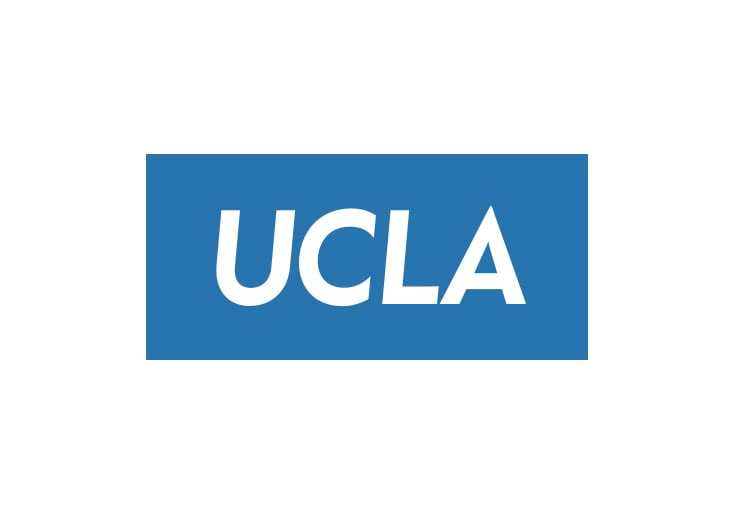Each JCOIN study brings researchers together with justice and health stakeholders in five or more communities to address gaps in opioid use disorder treatment and related services. Their work engages a wide range of justice settings, including jails, prisons, community corrections, problem-solving courts, and juvenile justice agencies. The studies evaluate behavioral interventions, digital therapeutics, comprehensive patient-centered treatments, and delivery of medications for opioid use disorder (MOUD) throughout the United States.
In 2018-2020, JCOIN supported 15 accelerator supplement projects, which included short-term studies and surveys.
Browse all or use the filtering tools below for more information about JCOIN studies.
Community vs Home-Based XR-NTX Dosing Post-Release (073)
This study focuses on whether the addition of mobile medical extended-release naltrexone treatment (XR-NTX) will increase adherence and thus efficacy of the medication for pre-release prisoners. Project implementation occurs at 9 prisons under the jurisdiction of the Maryland Department of Public Safety and Correctional Services (MD DPSCS). Following initial screening, informed consent, and medical examination,…
The Effect of Social Determinants on Health and OUD Treatment Post Release (072)
The first Aim of this proposal is to determine the relationship between social determinants of health (SDoH) and treatment selection/receipt in jail, and the second Aim is to use that information in a propensity score weighted analysis to measure the effectiveness of the program and provide methodological guidance to other research in the field. This…
The Recovery Capital Model in a Drug Court Setting (071)
The primary aim of this study is to build on our previous feasibility pilot of the Recovery Capital intervention (REC-CAP) with two collaborating federal drug treatment courts (DTCs) through an empirical examination of client progress and outcomes when the REC-CAP is implemented as part of court practice. The REC-CAP is a standardized recovery capital measurement…
Peer Delivered Episodic Future Thinking to Improve MOUD Treatment Engagement among Returning Citizens (070)
Individuals returning to the community following incarceration (“returning citizens”) with substance use disorders (SUD) are at the greatest risk for overdose in the first two weeks following the transition from incarceration. Thus, the reentry period is of specific importance for ensuring individuals are engaged and retained in specialized intervention services. Individuals also face numerous, and…
Analysis of Fentanyl Mentions in Social Media (069)
This study seeks to understand public attitudes and knowledge of fentanyl through an analysis of discussions on popular social media sites (Facebook and Instagram) since the beginning of the COVID-19 pandemic to understand the types and sources of fentanyl content being shared the most on social media. This analysis will describe the tenor of the…
Qualitative Research to Understand Causes of Stigma (068)
This qualitative research study builds on JCOIN026 (Brief Stigma Surveys) by conducting interviews with AmeriSpeak participants based on their OUD stigma scores to learn more about why they hold their respective levels of stigma towards people with OUD. Interviews will be conducted with participants who report strongly endorsing stigmatizing attitudes toward individuals with OUD and…
Feasibility of Collecting Digital Mobility Data for Research (067)
Researchers studying opioid use disorder (OUD), especially among populations who have been arrested or incarcerated, have a difficult time recruiting and retaining participants to studies. Similarly, researchers and policymakers have a difficult time ensuring that patients with OUD stay engaged in clinical care services, such as medications to treat OUD. New forms of digital data,…
Post-Release Overdose Outcomes in Los Angeles County (066)
The goal of this study is to examine fatal overdoses among people who have experienced incarceration in Los Angeles County between 2014 and 2022 by (a) merging data from the Los Angeles Sheriff’s Department (LASD) on their jail bookings and releases with data from the Los Angeles Coroner’s office on fatalities in the county, and…
Testing a Behavioral Health Literacy Intervention (065)
A major knowledge gap is that we do not understand whether incarcerated individuals understand the role of Behavioral Health Disorders (BHDs) in their lives, the symptoms professionals are attempting to treat, and how to access available resources (e.g., social support, services, treatment, or medications). There is a high prevalence of BHD symptoms among this population…
Pilot Test of a Coach Extender Platform (064)
Coaching is identified as an active ingredient in learning collaboratives and has been one of the more successful implementation strategies for achieving organizational change. A significant deficit with coaching, however, is its labor intensiveness for the coach, organization, and involved staff. This is a substantial barrier because expense often makes this pivotal implementation strategy cost…
Health Economics Analyses of JCOIN Clinical Trials (063)
JCOIN will generate real-world evidence to address the unique needs of people with opioid use disorder (OUD) in justice settings. Evidence regarding the economic value of OUD interventions in justice populations is limited. Moreover, the variation in economic study designs is a barrier to defining specific interventions as broadly cost-effective. The JCOIN Health Economics Analytic…
Analysis of Sublingual vs Injectable Buprenorphine Pre-Release (062)
This study adds a quasi-control arm to JCOIN 034, a clinical trial comparing extended release naltrexone (XR-NTX) to extended release buprenorphine (Brixadi formulation, XR-B) initiated prior to release from jail. In this quasi-control arm, additional data will be collected from 120 incarcerated men and women receiving sublingual buprenorphine (SL-B) in jail, who will continue their…
Using Narrative and Misinformation Correction to Improve Staff Attitudes toward MOUD in Correctional Settings (061)
This study seeks to inform intervention efforts by examining which communication strategies can improve attitudes toward MOUD among correctional staff and health professionals in justice settings. Correcting misinformation requires the testing of different communication strategies to assess which approach can yield the desired change in attitudes and beliefs. This study has three specific aims. Aim…
Testing a Specialized Reproductive Health and Substance Use Intervention for Girls involved in the Juvenile Justice System (060)
Court-involved non-incarcerated (CINI) girls comprise 80% of juvenile justice involved girls and face high sexual health and substance use risk, coupled with significant barriers to care. Although a robust literature supports the efficacy of curriculum-based sexual health education interventions for reducing sexual health risk among marginalized girls, gender-specific interventions are needed and few studies have…
Expanding Access to Methadone Treatment for Justice Involved Individuals through Video Direct Observed Therapy (059)
Patients with Opioid Use Disorder (OUD) who are recently released from prison are at high risk of overdose when they re-enter the community, both due to reduced opioid tolerance and the psychological stress of reintegration. They also face unique challenges in accessing treatment for OUD, including transportation barriers, unstable housing, limited financial resources, and parole…
Identifying MOUD Decision-Making Factors in Criminal Problem-Solving Courts (058)
Medications for opioid use disorder (MOUDs), especially opioid agonists (i.e., buprenorphine and methadone), are the gold standard of care and can decrease mortality risks for people with OUD by 50%. However, a nationwide study found that fewer than one in 20 problem-solving courts refer participants to MOUD and some courts ban participants from MOUD utilization….
Improving Low Threshold Naloxone on Release from Incarceration (057)
The primary aim of this study is to determine if providing high-volume, low-threshold, naloxone-on-release is effective at placing naloxone in the hands of jail releasees most likely to experience or witness an overdose. Two secondary aims are to determine facilitators and barriers to releasees obtaining additional doses of naloxone in the community after release, and…
Ending Self-Stigma Intervention (056)
This project adapts an intervention called Ending Self-Stigma (ESS), which has shown promising results in two large randomized controlled trials. The adapted intervention, called Ending Self Stigma: Medications for Justice-involved Populations (ESS-MJP), incorporates a psychosocial intervention directly addressing problematic anticipated stigma and internalized stigma around the use of Medications for Opioid Use Disorder (MOUD). This…
Real Time Data on Post-Release Mortality (055)
Numerous studies have documented an increased risk of mortality following release from prison. However, considerable lags exist between the time that a death takes place and when cause of death information is reported in State Vital Records. Reporting delays prevent health departments from being able to proactively respond to public health emergencies as they arise….
Evaluation of a Novel Continuity of Care Model for Offenders with SUD (054)
This study proposes the first rigorous examination of a novel continuity of care model (called CCDAT) that extends from detention through probation. The project will assess the effectiveness of the CCDAT program in promoting detainee recovery and its impact on recidivism, by examining the level and type of substance misuse and the psychological and social…













